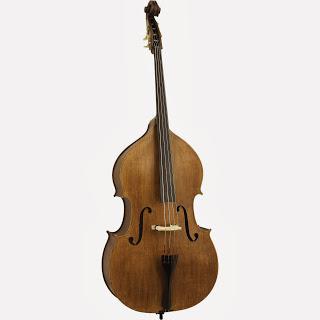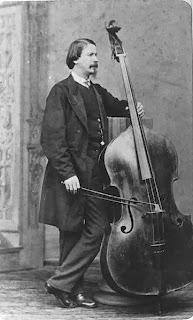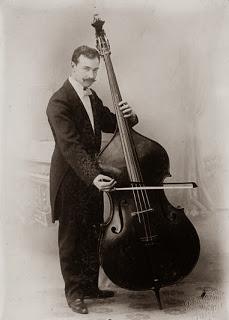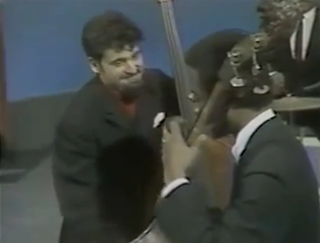Free-for-all Friday: An ode to the day job
Published
I went to school to learn how to play the bass. This thing:
And I’m not talking about jazz or bluegrass. I went to school for classical music. I had to take Powdered Wigs 101 and 102 in order to graduate.
Look at how shoddily this man wears his wig. I don’t even think he remembered to powder it! This is why an expensive university education is so important.
The skills I learned in school are not in high demand. The options open to me are to get a job in an orchestra (this is extremely competitive and an average of 2 orchestras go bankrupt a month in America) or as a classical bass soloist. No one is interested in hearing a classical bass soloist. Almost no one, that is. Your main audience is aspiring classical bass soloists and they are all fools.
As a result, I have a day job. At its core, a day job is doing something you don’t particularly like for money. It really sounds glamorous when I put it that way. I’m not so sure that a day job is a bad thing, though. When I look back at history I see that there may be some advantages to separating your creativity from your financial needs. Lets see some examples from my milieu, the Milieu of Classical Bass Soloists (MOCBS).
First let’s discuss Giovanni Bottesini.
He was known as the Paganini of the double bass. This means that he was Italian and played really fast for no good reason. Was he able to make his living as a bass soloist? No! Of course not! He was only the best bass soloist in the world. We don’t expect the best maker of paper hats to be able to make a living at it and playing the solo bass is even more worthless.
So what was he forced to do as his day job? He was an opera composer and conductor most of his life. While in America a job like that sounds worse than digging ditches, in Italy in the 1800s an opera composer and conductor was considered a respectable job like a janitor or door-to-door bible salesman. He even became somewhat well known as a conductor. But the shame must have been unbearable when Verdi asked him to conduct the premier of his opera Aida.
For us, though, there is no shame. We were robbed of an irrelevant bass soloist and given a musician of note. He would much rather have been performing his Concerto for Double Bass in B minor, but luckily music lovers got something worth listening to. Hooray for day jobs!
Next, there is Serge Koussevitzky.
Koussevitzky’s Bass Concerto in F# minor (the reason solo bass repertoire is all in stupid keys has to do with the fact that bass players hate you) is beloved by no one and the recordings of his playing are frankly ridiculous.
You’d think that someone who slides between all the notes would be able to end up in tune, but he manages to deftly avoid this. The tune is mildly charming but wouldn’t it be more charming on a cello? The problem is that a cellist has repertoire by actual composers like Haydn or Brahms and doesn’t need to play cutesy garbage composed by a nobody.
Once again we can look to the day job for salvation. To avoid starvation, Koussevitzky became conductor of the Boston Symphony in 1924. He used his frustration as an artist to turn that group into a real orchestra and conducted the premiers of excellent modern music and commissioned a lot of it. If it weren’t for Koussevitzky we would not have Stravinsky’s Symphony of Psalms or Gershwin’s Second Rhapsody. If people were interested in solo bass playing those pieces maybe would never have been written.
Finally, we have Gary Karr. Due to globalization people can increasingly specialize. As a result, Gary Karr didn’t need to get a day job. This is what we get:
AAAAAAAAAAAAAAAAAAAAAAAAAHHHHH!!!!
Just look at this screen shot:
What’s so funny Gary? Is it that you are playing a boring Baroque sonata and making enough money to live on? That is pretty funny. There are a lot of people playing music worth listening to who can’t make that claim so I guess all of life is a sick comedy. We have to wonder what he would have been able to contribute to the world if only he were forced to have a day job. My guess is he would have designed the Guggenheim. Or maybe he would have been I. M. Pei. Definitely something in architecture.
Join Another Flavor next week when I return to my day job and stop sitting around my house thinking about the double bass.
-PTD




